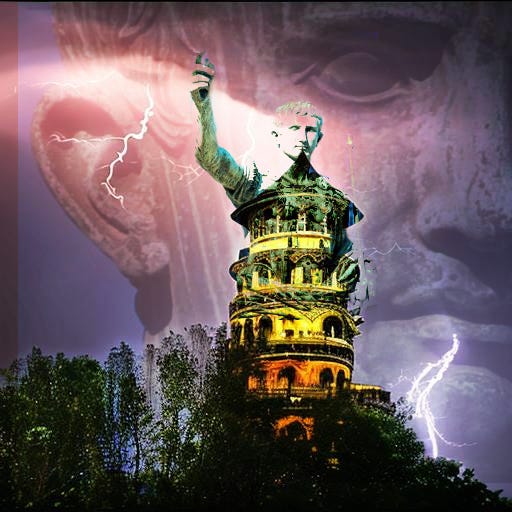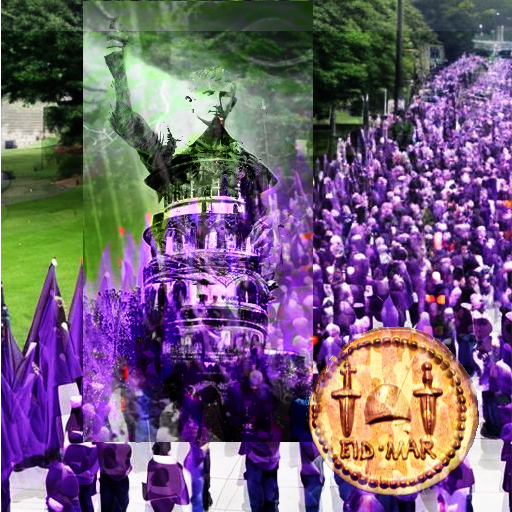Reasons to be real.
Reason ① versus Reason ② while currently reading Terry Eagleton's Culture and the Death of God
Recently I’ve been circling like a vulture…
I am a vulture…
I am the…
i am vulture
thermalling
above…
— the gap.…looking for the signs of death below on the plains of rationality so I can feed my family in the nest, dear readers.
And disappointingly… —am not finding anything that might educate our taste buds, not even the sky burial of some tough old elder.
Too tough, too desiccated, too dead.
What sent me up to glide, way up into the stratosphere of conjecture, was the notice that logic, in its mechanics, and thus reality, is something we notice in hindsight.
We are born into a world. We are born learning the world and ourselves in the world. Parents prepare for all that, choosing names and marriage partners, and we call it nesting when they intensify what we do in everyday routines and practices, for the world is our nest, not just the nursery of expecting-ing. There is no nursery without the world.
And thus we come to look out and see what comes before us, has come behind us.
We become ourselves and belong in the world before we look to see what is real. What is illusion comes first. This is where all origin stories begin, for even in the world we are aware, we did not arrive as the very first to do so. The origin myth is just that.
The world is a child,
child is nursery
to the parent;
Iterate. Generate. Reciprocate.
What comes before…We look back, and curious we imagine looking back before we can look back. What is there?
Reasons rationalise what we have done, and count back from there before all that. There is no alternative in hindsight, all must be’s, because we are here now… —it’s all mechanicks and logicks, click clack, tick tock, spilt milk, water under.
Regret is another matter altogether, it pretends to look forward from some point in our past but…
So we look back, and then we have our reasons before us, and they animate us anew like ghosts in the machine. In worship we can confangulate a practice of complotting expediency. Hush now and pray.
To repeat, and put it confoundedly onwards: We re-animate the reasons in projections of Reason ( ① & ② etc.) into what has been done, to us, for us, and so are able to predict what comes next, come what may.
We zombie the reasons. Reasoning can deliver us into a mad world. We turn the future into the past, the mad world upside down.
If we control the past, we control the future. (And it works because we are wrong.)
We think that everyday, as part of building the world. It is a practice, not a belief, not always. Even the notion of reality comes out of building the world really, don’t you think? Worldbuilding is psychologically prior to any reality we can expect to… —seek. Worldbuilding is prior to personhood building, even if it is bootstrapped in co-evolution. No designers, no makers, no care for outcomes.
That’s what we do when we world build our persons.
Logic is a hindsight, when we study this as objectively as we can, we formulate it into a consistency and in a part-to-many rationality excluding middle bits and our selves, that digitizes the reality it presumes, as it is guessed at being, and as we make it promise the future.
A dead cert.
We substitute error for chance. We make it all human, we make the world that forgives us our childhoods. The self-made becomes an emperor on top of a tower.
We babble happily.
See, logic comes to us later in life when we have just begun living and growing and learning. That’s why its so hard. It’s not natural, we feel it should be, but… and as we suspect, the real world reality thing does not care about our world, this hurts. Even then, we invent reality to not so much to remove the mystery, nor to explain the pain, but to build a better world of sorts. A world under our control, under our understanding.
Confound it.
Despite the discovery of logic and reason and rationality in reality, we continue to be ourselves in the world.
Evidence of this is when we claim some portion of reality as justifying our entire ideological being (Communism/libertarianism/isming as world-building…) with patriotic characteristics, and we call that Reason ( ① ).
Yes, we intensify, recursively, and intently. We throw these logicks into structures, and are constantly befuddled in that we cannot get from A to B as easily we had hoped/predicted/expected, and thus our intention must then invent security/safety/certainty from our expectations and inclinations.
The search for stability leads to change.
We do not easily learn that while logically reality is built from A to B (this is Reason ② ), we live in the world in which B is a prior experience, and A is an intense mystery we think we can work out, based on growing up in B.
We can use Reason ① & ② to fill in the gap between the world and reality, or to demarcate between the world (fantasy) and reality (reality).
Also it can be a methodological practice, it can be used to guard the… —gap.
For example, in the way the Catholic Church polices i… —t so its members maintain their membership obediently believing or not believing as the case may be. Obedience to the church is more important than what is believed, as all that is open to choice==heresy, which, in the same way that fornication may lead to dancing, choice leads to disobedience. ==end of empire end of church.
The Chicken Little bit here is that empires are always with us, so the fear of disobedience is a temporal, profane terror, and centered on personalities who hold positions at any one time or place, they fear that they will lose that power and position.
Evolution doesn’t care, so we invent all sort of things within that potential of freedom allowed us. Some of these things we call objects, and order the world in seeking to understand an objective reality so lately seen in hindsight, (it must be there somewhere) but really we re-invent, re-inscribe, re-intensify the notion of certainty from/in the form of prayer and perhaps sacrifice, in order to forestall arguments about whose reality will succeed. Whose empire will wins the clash of iron on bronze?
Who should win?
Why an empire? Empires like the poor are always with us. Except when they aren’t.
Re-intense?
Winners are idiots.
For empires, re-intensification is always with us like a battlefield, and so because wars despoil our meliorating impulses, progress in the real world, so-to-speak… —it takes us ages to realise that any intuition that reality is “built” from A to B, is an outcome of the battle we try to avoid, and in dealing with it… —in building the world fit for love… —the bones, the gore, the hungry vulture looking for a feed for their family.
Kin and kith. Ravenous.
There is a circle of life, but it does not care about reality, not directly, for the world cares about the world, as it really should, when we care, of course, as we should.
So we make mistake and seek, need, some sort of story of a monstrous hybrid giant of the world and reality, where some lovely looking hero, born good like a demi-god, who will slay the monster problems, and in doing so creating the bronze age out of the world, and where the droplets of blood become seeds that people grow out of literally mythically.
We are descended from the monster, not the hero. For gods do not exist, except as monsters.
As they should? Perhaps not, but then not all myth fails to be history, even when it is not true.
Currently reading
Terry Eagleton, Culture and the Death of God (Yale University Press, 2017) <https://doi.org/10.12987/9780300206548>
Terry mostly talks about Reason ② as it is about the Enlightenment. Not about those reasons ① the Catholic Church, an imperial government department gone rogue, uses, even if the Enlightenment is about being disobedient to that to the max.
Newer version of this at whyweshould.loofs-samorzewski.com from October 2024.







